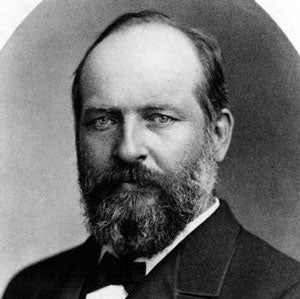
Your support helps us to tell the story
From reproductive rights to climate change to Big Tech, The Independent is on the ground when the story is developing. Whether it's investigating the financials of Elon Musk's pro-Trump PAC or producing our latest documentary, 'The A Word', which shines a light on the American women fighting for reproductive rights, we know how important it is to parse out the facts from the messaging.
At such a critical moment in US history, we need reporters on the ground. Your donation allows us to keep sending journalists to speak to both sides of the story.
The Independent is trusted by Americans across the entire political spectrum. And unlike many other quality news outlets, we choose not to lock Americans out of our reporting and analysis with paywalls. We believe quality journalism should be available to everyone, paid for by those who can afford it.
Your support makes all the difference.
A dark horse candidate, who won the Republican nomination as a compromise between rival factions supporting Ulysses Grant, John Sherman and James Blaine, Garfield grew up in great poverty – he was the last president to be born in a log cabin – and rose through hard work to the highest office in the land via a successful Civil War, in which he rose to the rank of major-general, and a long spell as a Republican Congressman. He remains the only sitting member of the House of Representatives to have been elected president.
Although Garfield had been mildly implicated in the 1873 Crédit Mobilier scandal, he took an impressively straightforward approached to the presidency, rooting out corruption among Republicans involved in the awarding of mail route contracts ("Go ahead, regardless of where or whom you hit," he told those investigating the scandal; "I direct you not only to probe this ulcer to the bottom, but to cut it out"), and winning a power struggle with the head of the New York Republican party over the appointment of the collector of the Port of New York. Then, after fewer than four months in office, he was shot at a Washington railroad station by an embittered attorney, Charles J Guiteau, who had been turned down for a diplomatic post. He spent 80 days on his death-bed, watched over by his wife and probed with unsterilised instruments by well-meaning surgeons. He died from infection and internal haemorrhage.
In his words
"A brave man is a man who dares to look the Devil in the face and tell him he is a Devil."
"I would rather believe something and suffer from it, than to slide along into success without opinions."
"The people are responsible for the character of their Congress. If that body be ignorant, reckless, and corrupt, it is because the people tolerate ignorance, recklessness, and corruption."
"My God! What is there in this place [the White House] that a man should ever want to get into it?"
"The elevation of the negro race from slavery to the full rights of citizenship is the most important political change since the adoption of the constitution in 1787." (Inaugural address, 4 March 1881)
In others' words
"No man ever started so low that accomplished so much, in all our history." Rutherford Hayes
"Garfield has shown that he is not possessed of the backbone of an angle-worm." Ulysses Grant
Minutiae
Garfield was alarmingly accident-prone. When he was 16, he spent six weeks working on a canal boat between Cleveland and Pittsburgh, and fell overboard 14 times – despite never having learnt to swim.
While Garfield lay mortally wounded in the White House, Alexander Graham Bell, inventor of the telephone, tried unsuccessfully to find the assassin's bullet in his body, using an induction-balance electrical device that he had designed.
Garfield liked to entertain friends by writing in Latin and Greek simultaneously – one with each hand.
He used to exercise by juggling Indian clubs.
Join our commenting forum
Join thought-provoking conversations, follow other Independent readers and see their replies
Comments